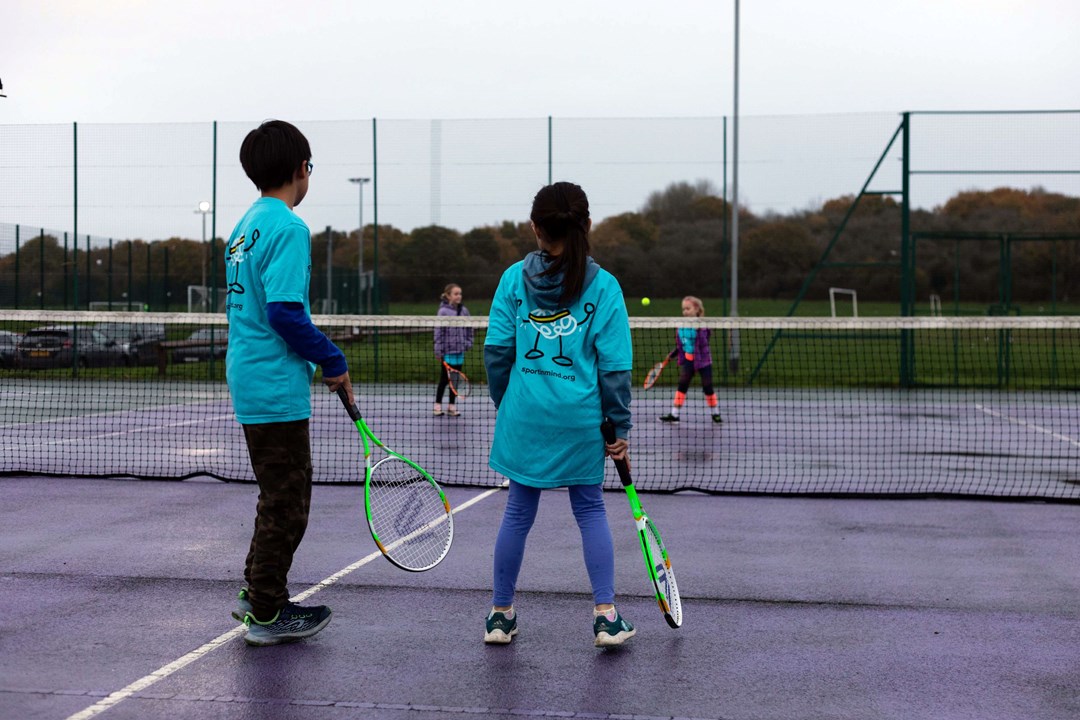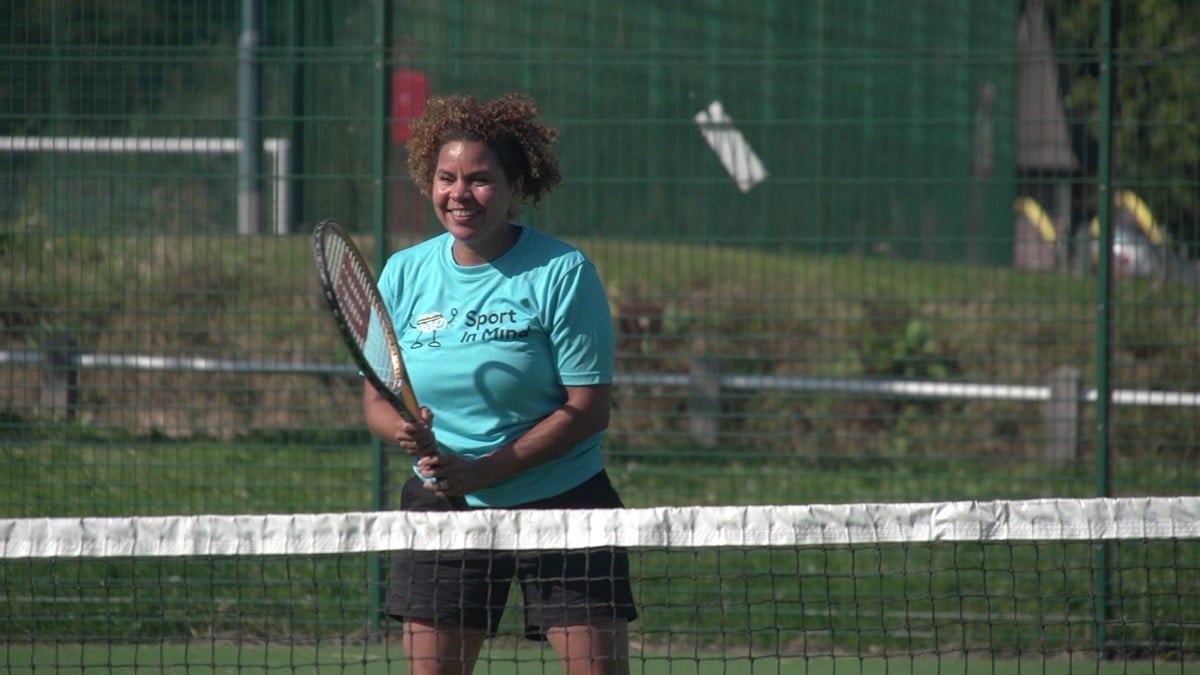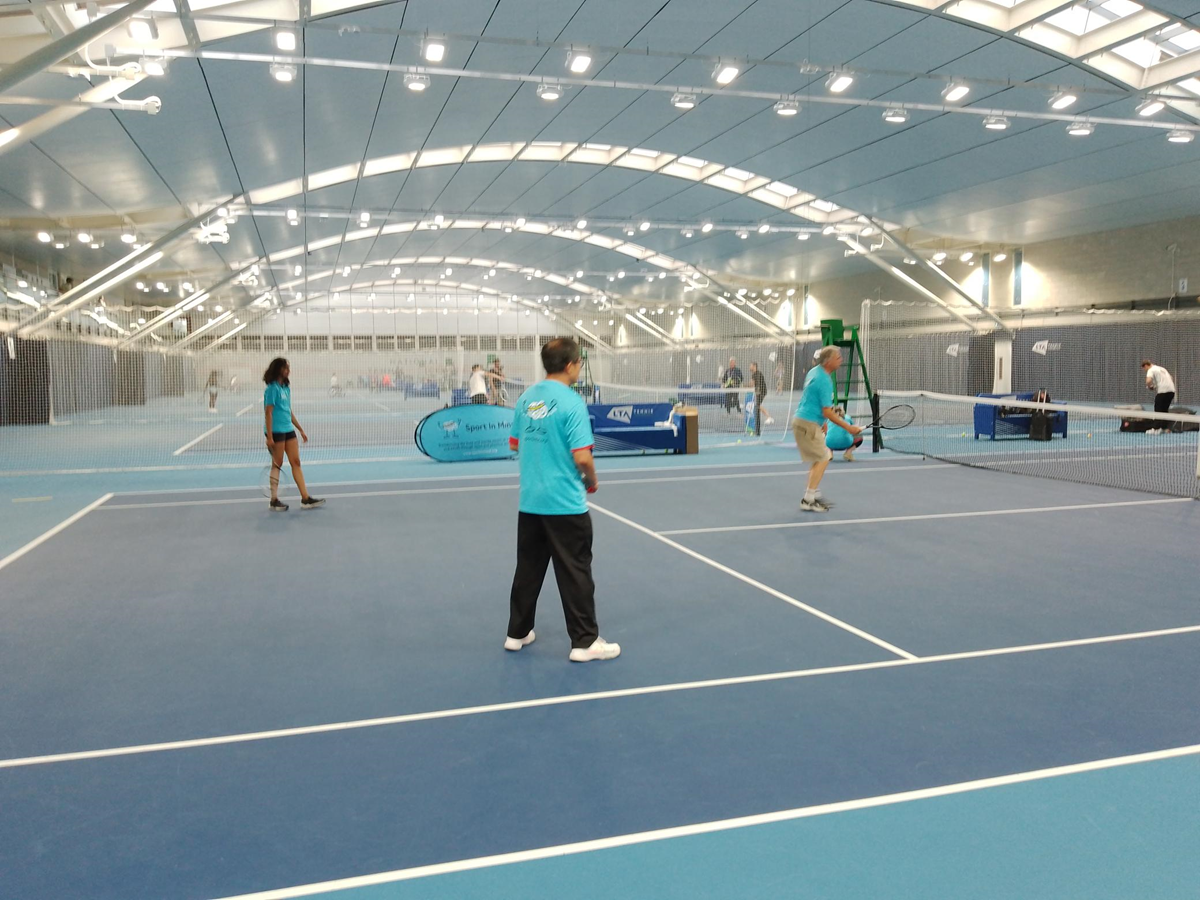
Introducing the UK’s leading mental health sports charity to partner with the LTA Tennis Foundation
• 3 MINUTE READ
It has come to be known that sport and physical activity hold almost antidote-like qualities when it comes to managing our mental health and wellbeing, and this form of natural medicine was at the crux of what came to be the UK’s leading mental health sports charity, Sport In Mind.
As a result of their successful application to the LTA Tennis Foundation’s grant scheme in May 2023, Sport in Mind are now working with our Open Court programme to scale their tennis programme across Wales, SE and SSW. The partnership was founded to provide support for people with severe mental illness, as well as those struggling with mild to moderate mental health conditions.
Established in 2010, Sport In Mind has since become rooted in the industry as an award-winning charity, gaining both national and international recognition for the work they do to improve the lives of people experiencing mental health problems through sport and physical activity.
The brains behind this unique non-profit organisation, Founder and CEO, Neil Harris, spoke on the history of Sport In Mind, their close working relationship with the NHS, and its evolution from a tailored physical activity programme to leading charity.
“For me, the whole concept of using sport and physical activity to manage or treat mental health is a bit of a no-brainer,” explained Neil.
“The reason Sport in Mind exists is because a childhood friend of mine had a breakdown in 2009 and I designed a physical activity programme based around an evidence-based therapy called desensitisation. Essentially, its breaking down your concerns into small, manageable steps.
“For my friend, his trigger was leaving the house and speaking to people. After having a breakdown, he spent a number of months sat at home by himself and gradually his mental health began to get worse. Unfortunately, this is quite commonplace as social isolation and mental health are closely linked.
“My friend became quite paranoid about things, but as is with a lot of people, the idea of accessing mental health support – particularly traditional mental health support like GPs or NHS services – was daunting for him. So, I designed a physical activity programme to help him get out of the house.
“After about 12 months of engaging in my programme, his confidence levels improved significantly, symptoms of anxiety and depression reduced, and he returned to full-time work in 2010. For the last 13 years he’s been relapse free. He still struggles with anxiety and depression, but he manages it through being physically active.”

After his friend returned to full-time work, Neil exchanged his life in the corporate world to give back to his local community, setting up a football group and safe space for those who were struggling with mental health problems. Through solely organic means, these sessions grew from a one-on-one session to a group of 36 within the space of just six weeks.
“I had no referral mechanisms in place and at that point, and I had no relationship with the NHS, or the council; it grew completely organically through word of mouth,” said Neil.
“The interesting thing is that not only did it engage its target audience of people with mental health problems, but many of these individuals had been physically inactive for a number of years before engaging in this football session.
“Berkshire NHS, who run the mental health services here in the county, then approached me and said we’d love to form a partnership with you and roll out a programme that goes beyond football. The partnership was formed in 2011 and we became a charity. That’s when we went from just running football to running things like tennis, badminton, table tennis, yoga, walking and more.”
As Sport In Mind burgeoned from a seed of thought fuelled by concern for a loved one to a non-profit organisation working in tandem with the NHS, plans were soon hatched to take the programme into hospitals to try and minimise regressive behaviours shown among those discharged.

“There’s a revolving door syndrome in terms of psychiatric care,” said Neil. “Generally speaking, when people are struggling most with their mental health they’ll be admitted to a psychiatric hospital. They’ll get support in hospital for a period and ‘recover’ before getting discharged. Once discharged, people will return home, but life will often have changed quite significantly which frequently leads to isolation. And again, when people become isolated their mental health deteriorates and they’ll be readmitted to hospital.
“So, my idea was to go into the hospitals and engage the people while they’re most unwell, get them engaged in physical activity, and get them to build a rapport with our brand. When I talk about engagement with the brand, it’s important to note that it was never about shouting from the rooftops about what Sport in Mind do, rather it was about showing people with mental health problems that we’re a non-clinical service and we’re a place where they can go to have fun, socialise and won’t be judged.
“We are a mental health charity, but first and foremost, we are a sport and physical activity provider. In saying that to people, responses are often along the lines of: ‘I like sport, but I don’t want to go to a mental health group. I’m really happy to go and play tennis with Sport in Mind though because that’s not a mental health therapy group – it’s a group where I can go along, have fun and do something normal’.
“When patients are discharged from the hospital, their discharge packs include a timetable of our sessions in the community. When they go home, they don’t tend to engage immediately; they find their feet at home for a little while, but then, as they have access to these timetables, they often just think I really fancy going to play a bit of tennis or do a bit of Yoga, and as they already know what to expect from Sport in Mind, so it’s nothing new or daunting.
“Yes, there are still barriers, but they are being broken down quite significantly before they’re even discharged from hospital because Sport in Mind becomes something familiar to them; they know what to expect.”
The past decade has seen Sport In Mind go from strength to strength as they continue to expand their reach on a national scale, beginning their journey from their hub of Berkshire before spreading across the South of England and Wales. To date Sport in Mind delivers in excess of over 100 sessions every week, across 12 counties, supporting over 18,000 people in the last decade. Yet, Neil has no intention of stopping there, foreseeing further growth for the charity as he aspires to make an impact in the North of England and beyond.
“After building a relationship with the Berkshire NHS, we then developed nationwide interest,” said Neil. “At this moment in time, we’ve had about 300 areas across the UK asking us to come in and deliver sessions.
“We’re a small to medium sized charity, so we don’t have the capacity to go all over the country, but our aspiration over the next 5-10 years is to become operational across the UK.”
Not only does the partnership allow for the expansion of Sport in Mind’s tennis sessions but, as an organisation that fully understands the true benefit of physical activity on mental health, the partnership will also enable Sport in Mind to provide the tennis workforce with best practices, tips, advice and support on providing enjoyable tennis opportunities for people with mental health issues, as well as fact sheets and educational tools for coaches and volunteers who work with the LTA.





